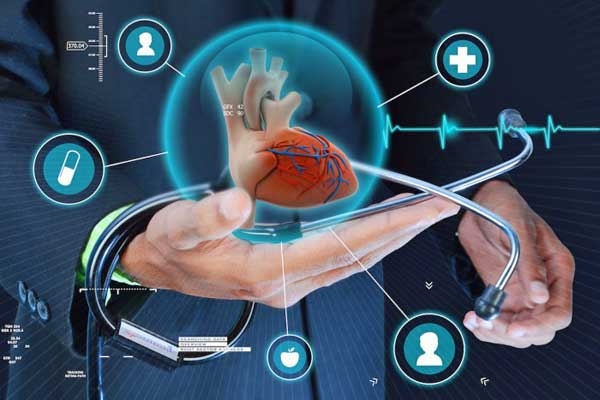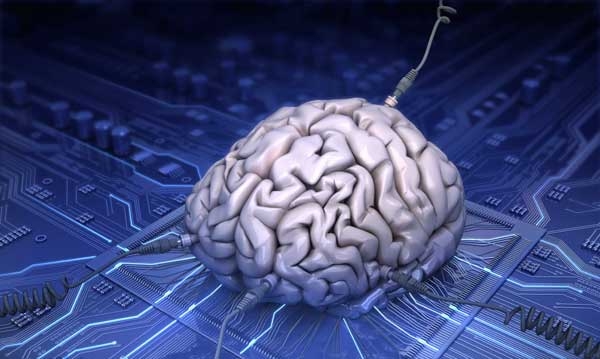In this fourth and final question-and-answer session, I spoke with Dr. Hermann Schindler, CEO of HS INNOVATION. Dr. Schindler will be speaking Monday, May 8, 2017 at 2:00 PM. His session, “Health Data as the “New Oil” – Sensor Design that Yields Rich Insights”, will discuss how numerous start-ups and companies are building services and data algorithms to create value from collected health data without thinking about sensors themselves. However, for data to be meaningful and useful, sensors and access to them are critical
In this session, new health use cases created by Artificial Intelligence and application-specific sensors will be discussed. Additionally, examples will be in orthopedics, early stroke recognition, brain and neuronal research, and rehabilitation.
Prior to the conference, Dr. Schindler was kind enough to share his views on several topics affecting medical markets now and into the future. Here is what we’ve learned.
Mat Dirjish (MD): The Internet of Things (IoT), whereby almost everyone and everything will be connected to the Internet, is vastly becoming a reality. The medical community stands to be significantly impacted by this, with more patient monitoring devices connecting to the web and being controlled by smartphones and applications. This also aligns with the popular, and not particularly safe, practice of people self-diagnosing their symptoms using various medical websites. What do you foresee as being the most difficult challenges facing doctors and other frontline medical practitioners as a result of these phenomena?
Dr. Hermann Schindler (HS): Self-diagnosing is already a big issue – without wearables and IoT. In some cases patients come to doctors better informed. But in many cases the patients stay alone with some information. This causes, in many cases, confusion and even fear without reasons.

Sensor data and digital health solutions can make this self-diagnosis more valid and can help to avoid the negative effects. Especially if there are connections and dialogs with a doctor. The doctors face the following challenges:
- They must know how to interpret the data they get for a diagnosis from the sensors and wearables.
- They need to know how they can implement the data in the dialog with the patient and the treatment plan.
- In many cases it is useful or necessary to combine different sensors or wearables in a smart way to get the best results. This needs know how about the different offerings and applications
But there are big advantages: better diagnosis & treatment, cost savings, faster recovery just to mention some.
MD: What technological developments occurring now or are in the research stage that you feel will be most beneficial to patients? For example heart monitoring sensors for remote diagnostics, or other emerging technologies.
HS: Wearable EEGs combined with sensors detecting the movements of legs or arms help to re-learn movements of hands and legs after a stroke or accident. This kind of sensor combination even has the possibility for a diagnosis before a stroke. Research at the Charite in Berlin shows that before a stroke, there are abnormalities in the movement of legs. If artificial intelligence can identify these patterns, there will be the possibility to predict a stroke before the stroke happens or at least diagnose the stroke exactly. This can save lives, improve the life quality of stroke patients, and reduce the costs for health care.
This kind of sensor system with EEGs and motion analyzing sensors is also used by the University of Lübeck to analyze the “time clock” in the cells. This was also used to improve the physical fitness of the crew setting the world record sailing around the world at the beginning of this year (Jules Vernes Cup). A new world record was achieved with 45 days for sailing around the globe. The crew worked for this at a 6-hour day (4 hours sailing, 2 hours sleep). For this the 24 hours clock in the cells has to be changed to 6 hours. The sensors gathered not only very useful groundbreaking data for research, but helped also to fine tune the metabolic circle in the cells.
MD: What technological developments occurring now or are in the research stage that you feel will make doctors and other diagnosticians’ jobs easier and enable faster and more accurate diagnostics and other procedures?
HS: Artificial intelligence (AI) will give new insights, especially if AI is in the sensor system. This needs much design and much testing before a product can be launched. Easy examples are sensors for motion analysis in the feet. There are many sensors for this. But they do not exchange data between the feet in real time. Only this real-time data exchange between the feet enable a reliable data analysis. There are many biomechanical and technical reasons. If the analysis is done in a central and third unit, there is high latency between the signals. Data analysis in real time is not possible.

MD: As a speaker at the Medical Sensors & Design Conference, what is the most important concept you want to impart to the medical/engineering/sensor-centric attendees?
HS: The most important points are:
- Daily life data are key! Lab data alone have too many limitations! Wearable sensor systems deliver these data.
- We need specific wearables – not just low-end trackers and smart watches.
- AI will deliver unknown information about the human body and especially the human brain.
- Innovative sensors can predict health problems and incidents in an early stage or before they happen.
- It needs an eco-system of different sensors working perfectly together. Smart watch producer can play an important role inside of this eco-system.
According to Dr. Schindler, artificial intelligence (AI) will be playing a major role in healthcare and medical applications and sensors are critical components in the picture. Therefore, to stay on top of your game and insure your future health and prosperity, be sure to attend Dr. Schindler’s session, “Health Data as the “New Oil” – Sensor Design that Yields Rich Insights”, Monday, May 8, 2017 at 2:00 PM at Medical Sensors & Design Conference in the Boston Marriott Newton, 2345 Commonwealth Avenue, Auburndale, MA 02466. Attending will most definitely be in your best-health interests. ~MD